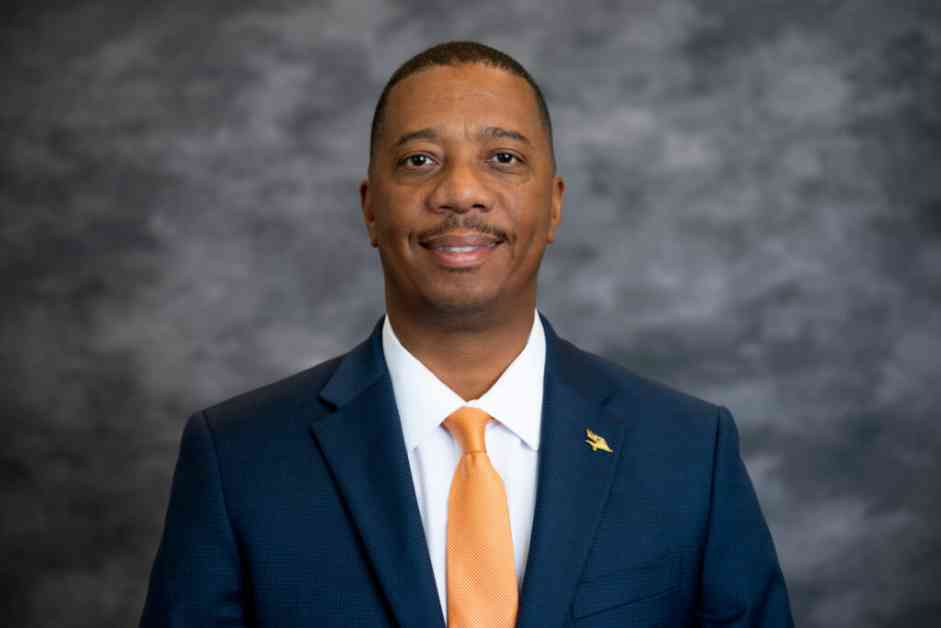Vernon B. Harper Jr. has officially shed his “interim” title at California State University, Bakersfield, after being appointed as the university’s permanent president. This significant announcement came during a recent Cal State board of trustees meeting, where discussions centered on the financial challenges facing the university system. With projections of a substantial budget gap looming in the upcoming years, Harper’s leadership will play a crucial role in navigating these fiscal uncertainties.
Despite the looming financial pressures, CSU Bakersfield has managed to shield its students from the impact of reduced budgets, thanks in part to a surge in enrollment this academic year. Harper’s strategic focus revolves around what he terms a “pivot towards the community,” with the aim of expanding programs to attract more Kern County high school graduates and community college transfer students to enroll at CSUB. This initiative is particularly crucial given the Central Valley’s rapid growth juxtaposed with lower college attainment rates compared to the rest of the state.
One of Harper’s key strategies involves forging closer partnerships with local K-12 schools to enhance the number of students meeting A-G requirements, essential for college admission at Cal State or University of California campuses. Only 36% of Kern County high school graduates completed these requirements in the 2022-23 academic year, significantly lower than the statewide average of 52%. Harper emphasizes the university’s commitment to tackling these challenges head-on by actively engaging with K-12 providers to elevate educational outcomes in the region.
In a bid to instill a college-going culture among students from a young age, CSUB has launched innovative programs targeting middle schoolers. A notable example is a pilot initiative involving four middle schools and four high schools, where students as young as 12 receive guarantees of admission to CSUB upon meeting A-G requirements. By expanding access to higher education opportunities and extending support to under-resourced populations, Harper aims to broaden students’ horizons beyond their immediate circumstances.
Over the past decade, CSUB has witnessed a steady rise in graduation rates, reflecting a positive trajectory in student success. However, the university still lags behind some of its Cal State counterparts in terms of graduation rates. Efforts to enhance student support services, such as pairing students with academic advisers for personalized guidance, have proven instrumental in improving graduation outcomes. Harper underscores the significance of investing in these support mechanisms to ensure positive student outcomes and retention rates.
Addressing graduation equity gaps remains a pressing priority for CSUB, particularly concerning Black students’ success rates. Harper has championed initiatives aimed at attracting and retaining Black students, including the establishment of a Black Students Success Center and the implementation of programs like Umoja to provide tailored support. By fostering a supportive environment conducive to the academic and personal growth of all students, CSUB is committed to promoting inclusivity and diversity across its campus community.
As Harper assumes his role as CSUB’s permanent president, he faces the challenge of steering the university through a turbulent financial landscape within the broader context of the California State University system. With looming budget deficits and anticipated declines in state funding, Harper’s leadership will be instrumental in safeguarding the institution’s financial stability while prioritizing student welfare and academic excellence.
In conclusion, Vernon B. Harper Jr.’s appointment as CSUB’s permanent president marks a significant milestone in the university’s ongoing efforts to address education issues in Kern County. Through innovative programs, strategic partnerships, and a commitment to student success, Harper is poised to lead CSUB towards a brighter future characterized by increased educational access, equity, and excellence.




















